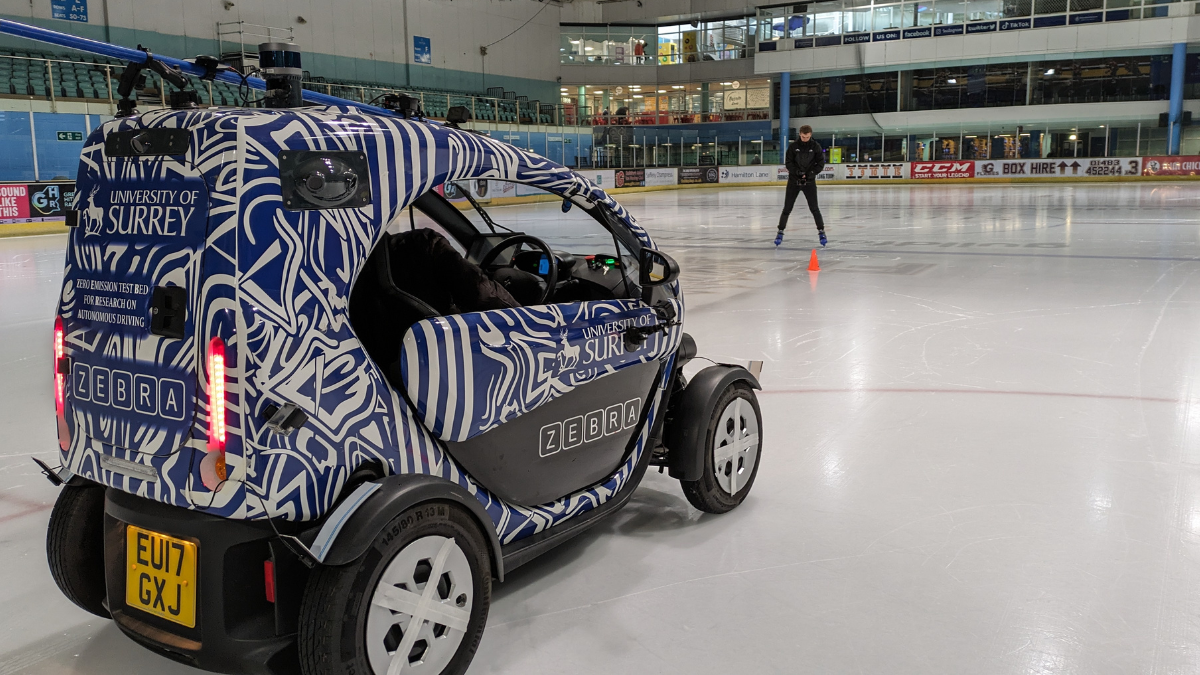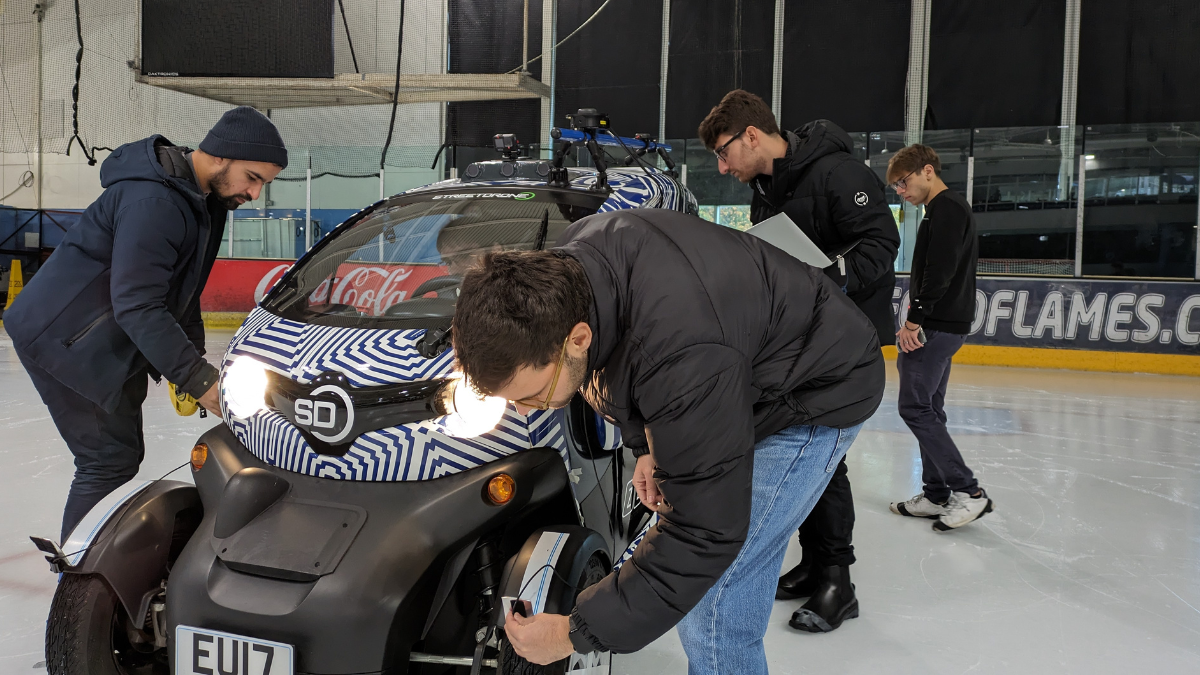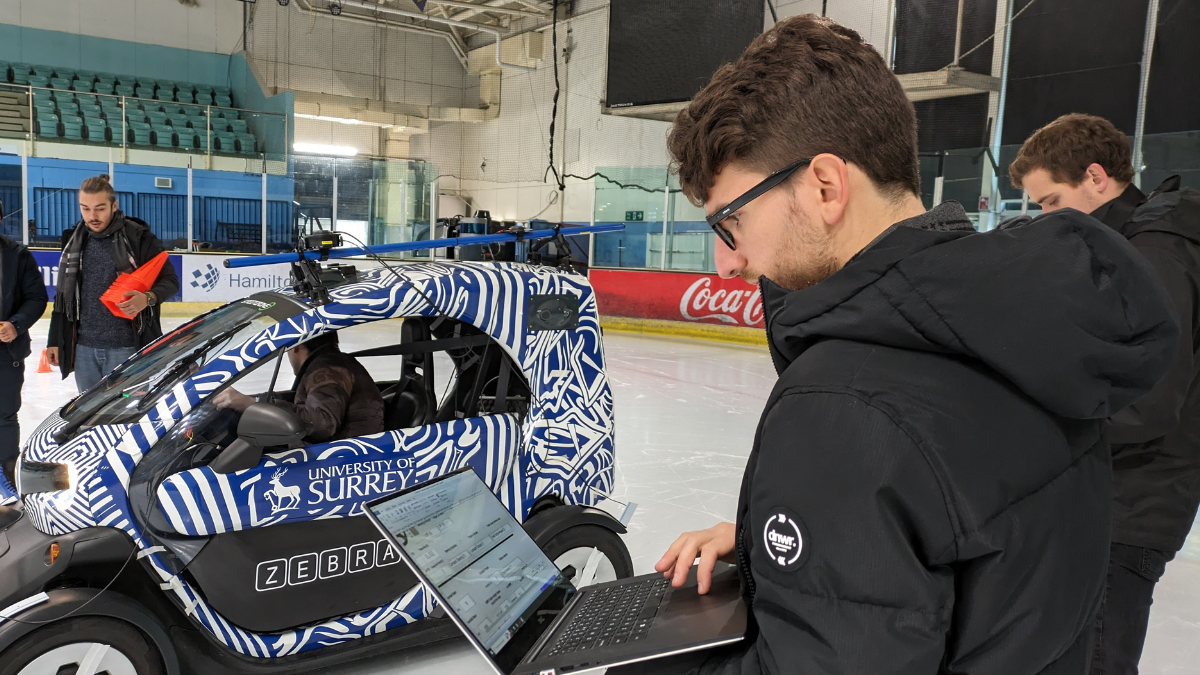Car drives round ice rink to test AI-powered traction control
A local ice rink played host to a different kind of skater as researchers from the University of Surrey used the Guildford Spectrum to test a new anti-skidding feature with their autonomous car.

The team is using artificial intelligence (AI) to develop a unique way of preventing skidding in icy or wet conditions. The system senses when one of the wheels is spinning too quickly and adjusts the power to that wheel accordingly.
The technology was tested on the University’s ZEBRA car – which stands for Zero Emission test Bed for Research on Autonomous driving. By using its driverless function, the researchers were able to more accurately control the vehicle’s acceleration, enabling more precise, consistent tests.
“We were delighted with what we were able to achieve in under two hours on the ice. Our system appeared to work very well, and we must now analyse our data and prepare for further tests.Carmine Caponio, a researcher in automotive engineering at the University of Surrey.
“It is highly unusual to be able to test technology on ice like this outside of large industrial companies – so to have a facility like the Spectrum available to us is a real privilege, and we are enormously grateful to its staff for making us feel so welcome.”
The team get the AI-powered Zebra car ready to drive on the ice rink.

The 90-minute test was a huge success – gathering more data than the researchers expected.
The researchers hope their new technology could make cars safer in icy and wet conditions.

“We’re excited to study our results and come back for more data in the New Year. We hope our findings will be of great interest to car makers – and can help make driving safer in slippery conditions for millions of drivers.”Mario Mihalkov, a researcher at Surrey’s Centre for Automotive Engineering.
Featured Academics
Media Contacts
External Communications and PR team
Phone: +44 (0)1483 684380 / 688914 / 684378
Email: mediarelations@surrey.ac.uk
Out of hours: +44 (0)7773 479911
